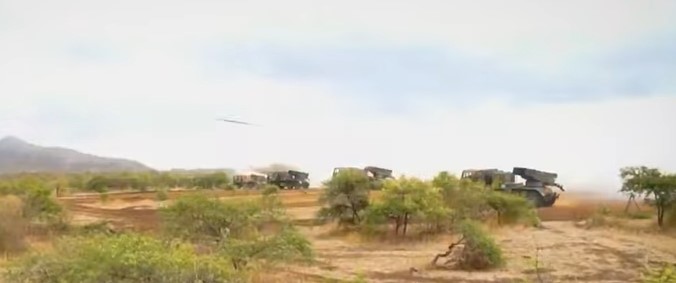Newsman: India launched military strikes against Pakistan as tensions spiraled following a deadly assault on tourists in the disputed Kashmir region. India said it launched missiles targeting “terrorist infrastructure” in Pakistan and Pakistan-administered Kashmir, the divided Himalayan territory that India also controls a section of.
Pakistan’s military said it shot down five Indian aircraft during the attack – a claim unconfirmed by India.
Pakistan said India’s attack killed at least 26 civilians and wounded 46 more. India’s army said at least 10 civilians were killed and 35 injured in cross-border shelling by Pakistani troops in Kashmir.
As Pakistan’s military vows to respond further to India’s strikes, here’s what you need to know about the escalating crisis.
India blames Pakistan for an April 22 attack in Pahalgam, a picturesque Himalayan meadow, that killed 26 tourists, most of them Hindu men. India has for decades accused Pakistan of supporting militant attacks and says it has evidence a group linked to Lashkar-e-Taiba, an Islamist militant outfit based in Pakistan, carried out the Pahalgam attack. India launched military strikes against Pakistan on May 7 as tensions between the two rival nations spiraled.
India claimed on Thursday morning to have intercepted “drones and missiles” fired by Pakistan at several military targets throughout northern and western India, saying the overnight attack amounted to a bid by Pakistan to “escalate” the conflict between the two countries.
India also said it targeted Pakistani sites, including a Pakistani air defense system at Lahore, which it said it destroyed.
A big hole is seen on a rooftop of a house suspected to have been damaged in Indian drone attack as residents, behind, gather near a cordoned off site, where Pakistan’s air defense system shot down a suspected Indian drone in Karachi, Pakistan, Thursday, May 8, 2025.
“Today morning Indian Armed Forces targeted Air Defence Radars and systems at a number of locations in Pakistan,” the Indian Ministry of Defense said in a statement. “Indian response has been in the same domain with same intensity as Pakistan.”
India on Tuesday and Wednesday launched aerial attacks on Pakistan, about two weeks after a deadly terror attack in the disputed Kashmir region. India blamed Pakistan for that militant attack, the Pahalgam incident, which left 26 people dead in Indian-held Kashmir. Pakistan denied involvement.
At least 16 people have been killed in India, the defense ministry said on Thursday. The Pakistan prime minister’s office said Thursday that 31 people were killed in India’s missile and drone attacks.
India labeled its May 7 attack “Operation Sindoor,” a reference to the red vermilion powder worn by married Hindu women. This is an apparent reference to Indian women widowed by the April 22 attack.
Nuclear-armed neighbors India and Pakistan have fought several wars and have been involved in a number of military standoffs since gaining independence from Britain in 1947. The partition of colonial India established a secular, Hindu-majority India and Muslim-majority Pakistan.
Indian Prime Minister Narendra Modi had convened on Thursday a meeting of his secretaries to discuss “national preparedness,” a high-level defense discussion that came as his Pakistani counterpart declared that Pakistan had “once again proven its superiority over its enemy.”
The Pakistani prime minister, Shehbaz Sharif, on Thursday praised the actions of his country’s military over the last few days.
“I salute the heads of all three armed forces and every brave soldier,” Sharif said, according to his office. “The 240 million people of Pakistan are proud of their armed forces.”
India and Pakistan both claim in full the mainly Muslim region Kashmir. Each controls just a part of it. The attack on Pahalgam was the deadliest assault on civilians in Kashmir in recent years. Pakistan separately accuses India of supporting separatist rebels in Pakistan, which India denies.
The United Nations, Russia, France and China, which neighbors India and Pakistan, all called for maximum restraint.
President Donald Trump called the fighting “a shame,” adding, “I hope it ends quickly.”
U.S. Secretary of State Marco Rubio called Sharif on Thursday, according to a statement from the prime minister’s office. Sharif conveyed to Rubio “Pakistan’s condemnation of India’s missile and drone strikes” and claimed India’s attacks “violated Pakistan’s sovereignty and territorial integrity,” according to the readout.
Rubio also spoke with Indian External Affairs Minister Subrahmanyam Jaishankar on Thursday, according to State Department spokesperson Tammy Bruce.
In both conversations, Rubio “emphasized the need for immediate de-escalation” and “expressed U.S. support for direct dialogue between India and Pakistan,” Bruce said.
U.S. Secretary of State Marco Rubio spoke to the national security advisers of both nations, urging them to “avoid escalation.”
India’s embassy in Washington said in an emailed statement that the country’s military actions were “focused and precise” and “designed to be non-escalatory in nature.”

